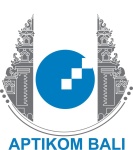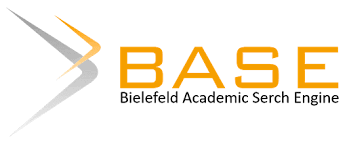PEMANFAATAN KOMODITI LOKAL DALAM PENDAMPINGAN WIRAUSAHA MELALUI PELATIHAN DEVIL PANCAKE DI SMK NEGERI 2 SINGARAJA
DOI:
https://doi.org/10.59819/sewagati.v3i1.3761Keywords:
Entrepreneurship, Culinary Training, Devil Pancake, Local Commodity, Young EntrepreneurAbstract
In the era of globalization and intense market competition, entrepreneurship is crucial for improving economic quality. One accessible form of entrepreneurship is through micro, small, and medium enterprises (MSMEs). Entrepreneurship allows communities to enhance their welfare and economic potential, regardless of age, offering vocational high school students the chance to become young entrepreneurs. Entrepreneurial mentoring for vocational high school students prepares them to innovate and develop strong entrepreneurial traits. This program, conducted in Buleleng Regency, Bali, known for its educational heritage, focuses on culinary entrepreneurship training, particularly in pastry making. Initiated by the Student Association of the D3 Hospitality Program at the International Tourism and Business Institute, the training includes practical food production using local commodities. One notable training involves making Devil Pancake, a simple yet innovative pastry. Participated by Culinary students from SMKN 2 Singaraja, using demonstration and duplication methods to enhance practical skills. Students observed instructors and then practiced independently, significantly improving their understanding and skills. The program yielded positive results, boosting students' confidence and practical experience. Using local ingredients and simple processes reassured students that starting a business is feasible. This program successfully motivated SMKN 2 Singaraja students to pursue entrepreneurship.
Downloads
References
Kadeni, N. S. (2020). Peran UMKM (usaha mikro kecil menengah) dalam meningkatkan kesejahteraan masyarakat. Equilibrium: Jurnal Ilmiah Ekonomi dan Pembelajarannya, 8(2), 191-200. https://doi.org/10.25273/equilibrium.v8i2.7118
Puspita, W. D., June, C. G. T., Santi, F., & Lakaq, M. C. I. (2023). MENINGKATKAN KEUANGAN RUMAH TANGGA: MENGGALI JIWA WIRAUSAHA TANPA BATAS USIA. Jurnal Pengabdian Masyarakat Khatulistiwa, 6(2), 152-156. https://doi.org/10.31932/jpmk.v6i2.2932
Tapaningsih, W. I. D. A., Safitri, M. N., & Supriyanto, S. (2024). PENGUATAN KARAKTER WIRAUSAHA PADA SISWA SMK NURUS SHOLAH KABUPATEN JEMBER. SUBSERVE: Community Service and Empowerment Journal, 2(1), 70-74. https://doi.org/10.36728/scsej.v2i1
Nola, Alfrida (2020) STRATEGI ADAPTASI MAHASISWA UNDIKSHA ASAL JAKARTA DALAM KEHIDUPAN SOSIAL DI KOTA SINGARAJA. Undergraduate thesis, Universitas Pendidikan Ganesha.
Mustawan, E., Aflanie, I., Rahman, F., Rosadi, D., Adji Prayudhistya, B., Halisa Amalia, N., ... & Deasy Safitri, R. (Buku) Panduan Dasar Organisasi kemahasiswaan (PDOK).
Downloads
Published
Issue
Section
License
Copyright (c) 2024 Dia Aprilla Dua, Luh Eka Susanti, Anak Agung Ayu Arun Suwi Arianty

This work is licensed under a Creative Commons Attribution-ShareAlike 4.0 International License.
Authors who publish with the Jurnal Sewagti agree to the following terms:
1. Authors retain copyright and grant the journal the right of first publication with the work simultaneously licensed under a Creative Commons Attribution License (CC BY-SA 4.0) that allows others to share the work with an acknowledgment of the work's authorship and initial publication in this journal.
2. Authors are able to enter into separate, additional contractual arrangements for the non-exclusive distribution of the journal's published version of the work (e.g., post it to an institutional repository or publish it in a book), with an acknowledgment of its initial publication in this journal.
3. Authors are permitted and encouraged to post their work online (e.g., in institutional repositories or on their website) prior to and during the submission process, as it can lead to productive exchanges, as well as earlier and greater citation of published work. (See The Effect of Open Access) .




















